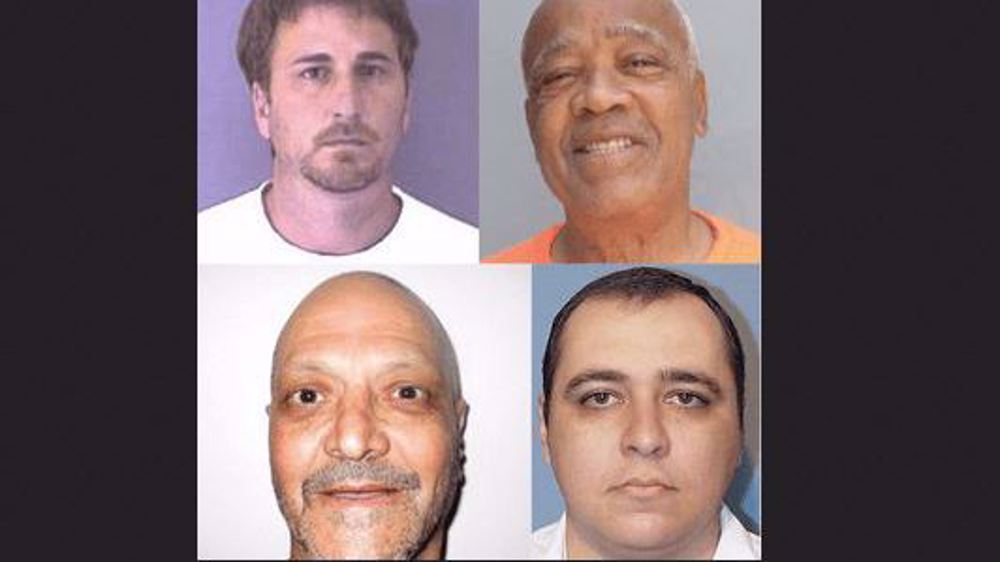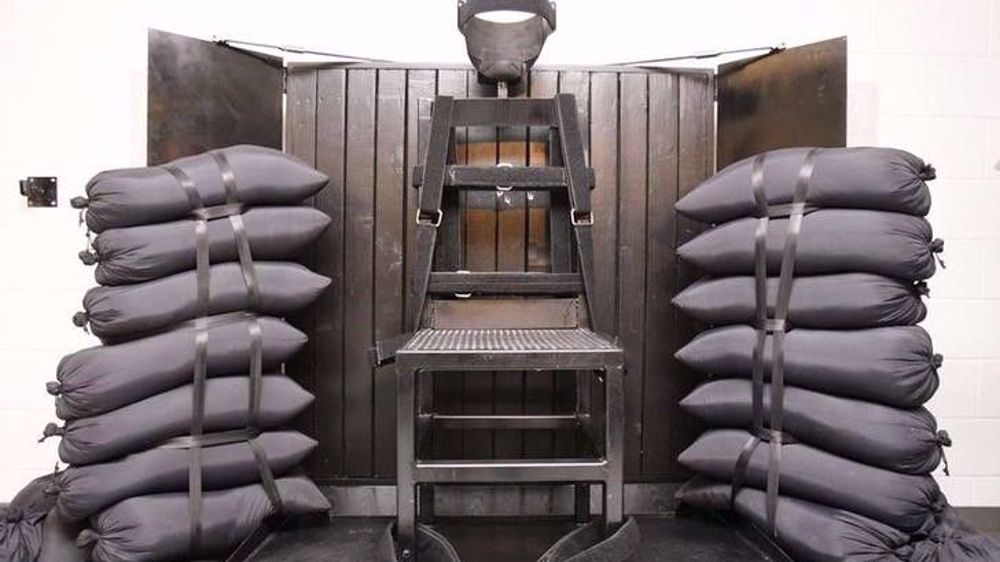Four executed in Texas, Alabama, Arizona, Oklahoma despite objections
The US judiciary has ruled for and carried out the execution of four men from four separate states despite objections to this practice.
The executed inmates had faced numerous challenges and, according to lawyers and supporters, injustices in their encounters with the criminal legal system, including prosecutorial and police misconduct, ineffective assistance of counsel, discrimination against Black jurors, judicial override of jury decision making, debilitating mental illness and brain damage.
Oklahoma executed Richard Stephen Fairchild and Alabama [likely] put Kenneth Eugene Smith to death on Thursday, while Stephen Barbee in Texas and Murray Hooper in Arizona were executed a day earlier.
Fairchild, who was an ex-Marine and former boxer, had killed his girlfriend's 3-year-old son Adam Broomhall in November 1993 after the child wet the bed. He received a lethal injection at the state penitentiary in McAlester at 10 a.m. CT on Thursday, November 17, on his 63rd birthday.
Fairchild, was among 25 inmates on Oklahoma's death row who had their execution dates set over the summer after the state's lethal injection protocol was upheld by a federal judge.
His attorneys had asked the Oklahoma Court of Criminal Appeals to stay his execution, arguing that he is mentally ill and not competent to be executed.
"Mr. Fairchild suffers from the effects of major mental illness, namely schizoaffective disorder, leaving him tortured with continued delusions," his attorney Emma Rolls told media. "His psychosis has been confirmed over the course of years by Oklahoma's Department of Corrections and often goes untreated. There is no doubt that Mr. Fairchild is deserving of mercy."
Death penalty opponents said they had delivered a "Happy Death Day" cake to Oklahoma Gov. Kevin Stitt's office on Wednesday to protest Fairchild's execution.
Today, folks on the ground in Oklahoma delivered a black birthday cake to the office of Governor Stitt demanding a stop to tomorrow's execution. Richard is scheduled to be executed on his 63rd birthday. #StopExecutions pic.twitter.com/XwOEiJVn4E
— Death Penalty Action (@DeathPenaltyAct) November 17, 2022
"Clemency is dead in Oklahoma," Sue Hosch, the Oklahoma coordinator for Death Penalty Action, said in a statement to media. "If a man who served his country as a US Marine with documented severe mental illness is not worthy of mercy, then no one is. Mark my words. This system will be changed."
Meanwhile, the state of Alabama has planned to execute Smith on Thursday, an inmate whose jury’s 11-1 vote for a life sentence was overridden by the trial judge who opted instead for the death penalty, a practice the state has since repealed.
Smith was sentenced to death by injection at Holman Correctional Facility in Atmore, Alabama for his role in the contract killing of Elizabeth Dorlene Sennett in 1988.
Prosecutors said Smith and two other men killed Elizabeth after her husband, preacher Charles Sennett Sr., arranged the murder to collect insurance payments for his debts.
His execution is the first death sentence determined by judicial override that Alabama has carried out since it abolished the practice in 2017.
Smith' attorneys argued that their client would not be qualified for execution, not in Alabama nor anywhere else, because no jurisdiction today allows the practice of judicial override.
Barbee, who was executed on Wednesday, had filed for a preliminary injunction that would have stopped his execution on behalf of religious freedom, but it was refused by the Fifth Circuit Court of Appeals on Nov.14.
Additionally, Barbee argued his conviction should be overturned because his original lawyers unconstitutionally conceded his guilt at trial against his wishes. Newly discovered evidence was presented by Barbee’s new lawyers to prove his conviction relied on a false forensic testimony by a coroner who was suspended from his job due to repeated errors and negligence.
Hooper was convicted and sentenced to death in a 1981 trial based on the testimony of a witness who was paid off in money and favors by the police, according to his lawyers, who explained this police misconduct was concealed until after the trial. Once revealed, several of Hooper’s co-defendants were relieved of their charges, but Hooper remained on death row.
He also argued his execution should be overturned because of discriminatory jury selection, and because his trial attorneys did not present mitigating evidence in his sentencing hearing.
Throughout his capital proceedings, Hooper had asserted his innocence, although the courts had consistently denied his challenges to inconsistent cross-racial eyewitness identification as well as DNA and fingerprint testing of items from the scene of the crime.
Meanwhile, this is not the first time in recent years that several executions have been carried out in a single week – it was quite common in pre-pandemic times.
In 2020, during the week of Jan.13, seven execution dates were scheduled by three different states and the federal government.
Some of these execution dates were stayed because of issues with litigation and execution protocols, and one person was instead sentenced to life without parole.
In Dec. 2019, six executions were scheduled by two states within the same week, and six executions scheduled within a week in October 2017. And during Arkansas’ execution spree in April, 2017, four executions took place in a week.
Hamas thanks Iran, Resistance Front following achievement of ceasefire in Gaza
'Capitulation': Israeli officials and media concede Gaza defeat as truce unfolds
'Gaza has won': Social media users react to ceasefire with mix of relief, joy
Iran seeks South Korea’s assistance for AI, fiber-optic projects
VIDEO | Iran's 'Eqtedar' (Power) maneuver
Israel hits HTS military target in Syria for 1st time since fall of Assad
VIDEO | Press TV's news headlines
Israel has slaughtered 13,000 students in Gaza, West Bank











 This makes it easy to access the Press TV website
This makes it easy to access the Press TV website